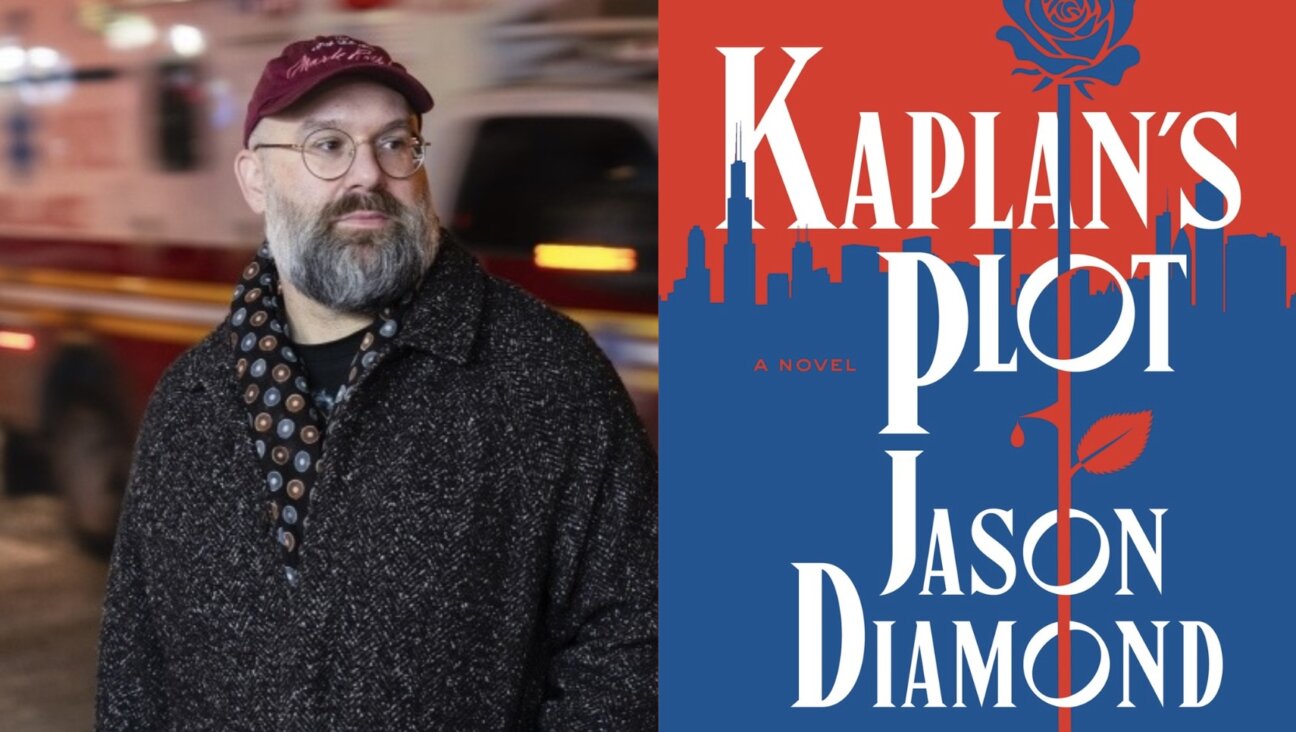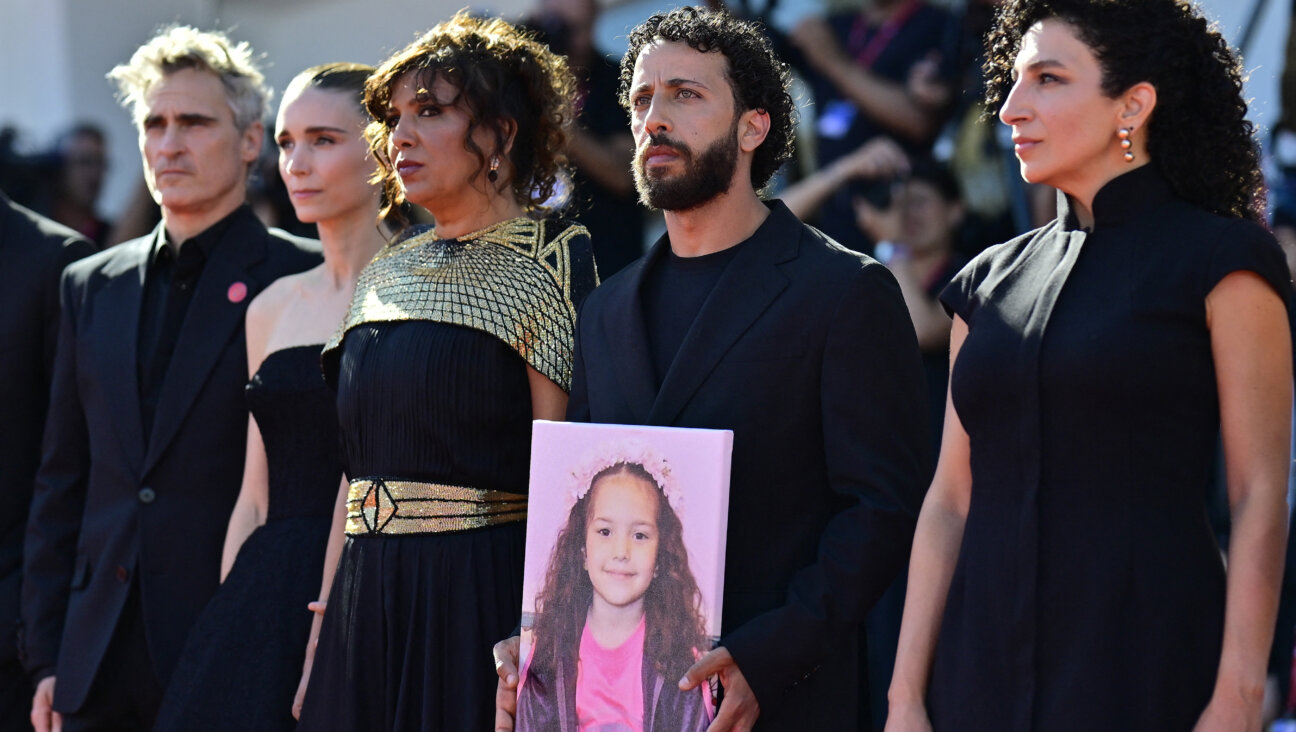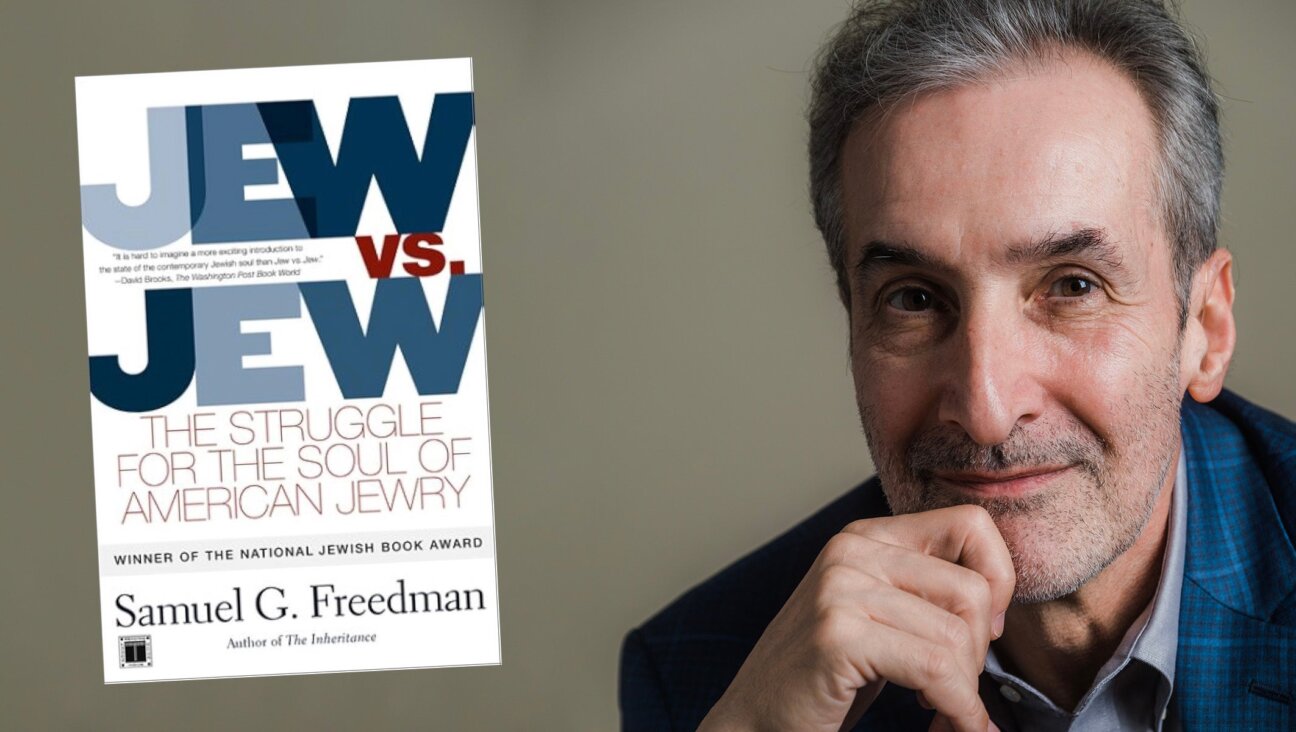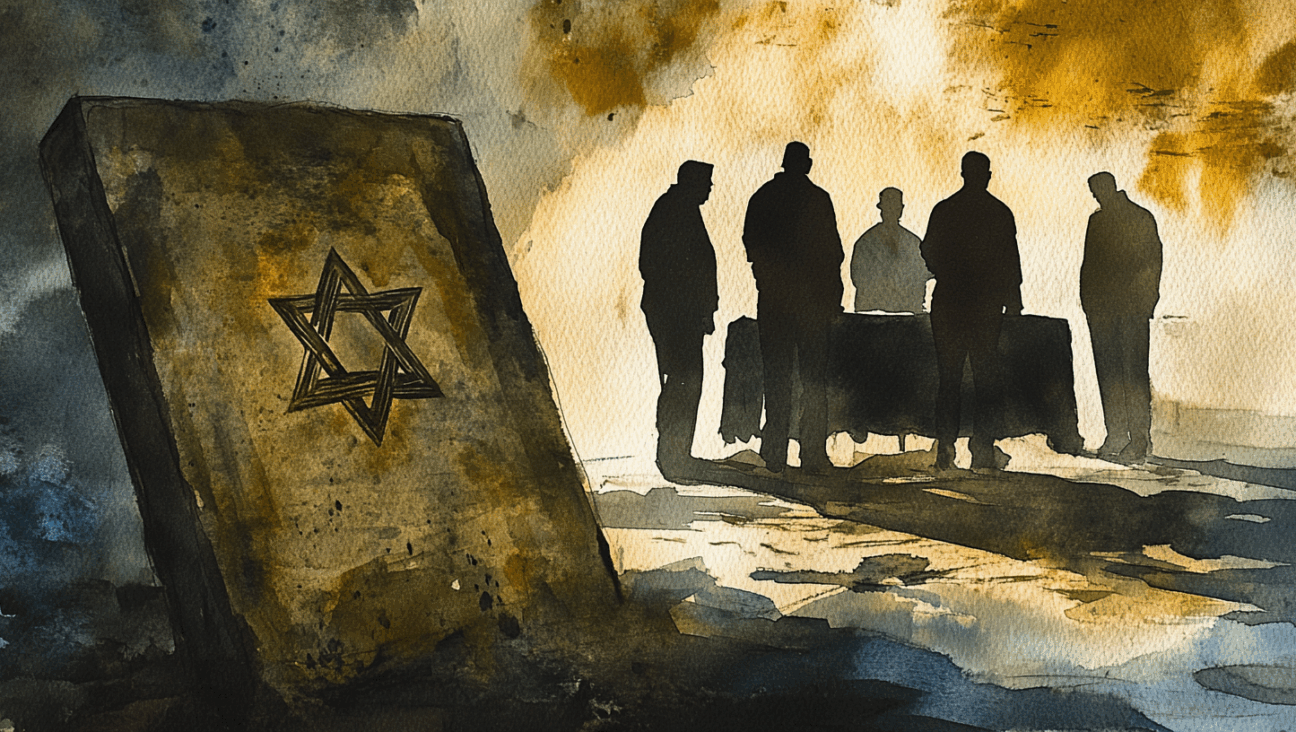“He really is Jewish” — Little Richard’s lifelong love affair with Judaism

Little Richard Image by Getty Images
Little Richard, the rock and roll pioneer who died on May 9 at age 87, brought a galvanic charge to live performances of such songs as “Tutti Frutti,” “Heebie Jeebies” and “Lucille,” drawing sustained inspiration from what he considered to be a Jewish identity.
This self-definition went beyond what some writers have identified as emotional parallels between Little Richard’s music and Jewish culture. Music historian Steven Lee Beeber described Little Richard’s “Heebie Jeebies” as identical to the agitated feeling of pins-and-needles known in Yiddish as shpilkes. Little Richard’s explosive stage shows were an extended restless leg syndrome, like a Pavlovian response to electric current. The singer himself repeatedly avowed that Jewishness played a part in this expression of energy.
In a 1972 BBC-TV interview to publicize The London Rock and Roll Show, a concert held at Wembley Stadium in August 1972, he described how other talents were inspired by him: “All of them came from me, po’ little bitty me, a lil’ Jewish boy, black bottom, from Georgia.” The BBC interviewer Francis Fuchs, clearly nonplussed by this unsolicited remark, exhaled with an embarrassed giggle and changed the subject.
Little Richard’s personal identities were wide-ranging, to put it mildly, and Judaism was more than a transitory interest. The American Jewish director Paul Mazursky, who cast Little Richard in his films “Down and Out in Beverly Hills” (1986) and “The Pickle” (1993) noted in his memoirs that when the actor refused to shoot the former film on a Friday evening, Mazursky “figured it was a scam,” but asked Little Richard’s manager, who “responded with a straight face, ‘He really is Jewish…”
In October 1985, shortly after the movie was completed, Little Richard was involved in a car crash. He told United Press International: “All I remembered when I awakened was I was in a Jewish hospital, and I said ‘Thank God.’”
He was treated at Cedars-Sinai Medical Center in Los Angeles, by Dr. Edwin Gromis of the Young Israel of North Beverly Hills an orthopaedist who is still practicing. Dr. Gromis, along with an unnamed brother, also a physician, were taking care of the singer according to press reports, which may explain why he understood that it was a “Jewish hospital.”
As Little Richard recovered, one of his bedside visitors was Bob Dylan, who in the 1980s was displaying interest in a return to Judaism. In December 1986, Florida’s “Sun-Sentinel” reported under the headline LITTLE RICHARD HIGH ON JUDAISM that the singer “announced that he has converted to Judaism. Saying that he celebrated Rosh Hashanah while on tour in England this fall, he added, ‘I’ve only missed going to synagogue one Saturday for the past year.’ One supporter of his recent conversion was none other than Bob Dylan who, Richard said, ‘spent seven hours at my bedside, talking about the importance of keeping the Sabbath’ when Richard was in the hospital last year after being injured in a car wreck.”
The following year, Playboy Magazine sent the film director John Waters to interview Little Richard. In response to the question “Are you Jewish now?” he said:
“There’s something I prefer not saying. I will say this. I’m a believer in the God of Abraham, Isaac and Jacob. I believe the seventh-day Sabbath is God’s way. I believe we should eat kosher. I was invited to a party night before last. Rod Stewart’s. I didn’t go, because I open the Sabbath on Friday.”
Persisting with the subject, Waters inquired if Bob Dylan had converted him to Judaism after the car accident. To which Little Richard only spoke of his closeness to his “blood brother” Dylan. Indeed, in his 1959 Hibbing High School yearbook in Minnesota, then-Robert Zimmerman had listed as his life’s ambition “To join Little Richard,” as if the singer were an evangelical movement.
Little Richard continually made this adherence a part of his stage routine, joking with a Ravinia Festival audience in 1998, according to the “Chicago Tribune” of January 2000,
“I’m the only Jewish guy in the business with a suntan.”
More seriously, when the English art critic Waldemar Januszczak interviewed him, Little Richard inquired, “You’re a Jew boy, ain’t you?” Januszczak replied that he was of Polish origin, whereupon Little Richard insisted, as if his interlocutor were ashamed of his true origins, “Ain’t nuttin’ wrong with being Jewish!”
As fans familiar with his life story know, Little Richard, born in Macon, Georgia, was imbued in evangelical worship in Baptist, African Methodist Episcopal (AME) and Pentecostal churches.
In 1957, he enrolled at Oakwood College in Alabama, a black Seventh-day Adventist institution. He was ordained a minister in 1970 and was evangelizing again by 1977. His preaching underlined the importance of racial harmony, idealizing a peaceable kingdom in which beings of all origins could live together.
So Little Richard saw Judaism as not contradicting his other beliefs. During a June 2000 New York appearance at B.B. King Blues Club & Grill, he reminded the crowd that he was Jewish, specifying he “never works on Fridays,” not even at high profile gigs such as Caesars Palace in Las Vegas. Before singing the song “Old Time Rock and Roll,” he asked for “two Jewish people” to join him onstage, followed by two Italians, Mexicans, Indians, and “two people who don’t know what they are.” This group of dancers drawn from the public clearly represented some form of essential human kinship at the heart of his world view.
He told “Rolling Stone” in May 1970, “You understand, we are all God’s bouquet, we all need each other the same as the birds need air. If a man is hungry, I don’t care if he’s black, white, Jewish or Mexican, you don’t need to go out and talk to him about his hunger. Feed that man; then talk to him about eating again and how to keep eating. I think we need to learn to live together because unity is going to make things happen, and where there’s unity there is strength.”
All the black churches that Little Richard was affiliated with advocated ecumenical outreach, especially after World War II, even if this was sometimes done in a proselytizing spirit. He was acutely aware of mortality due to his own brushes with death in accidents and the tragic demises of early friends and influences among African American musicians, including Esquerita, Billy Wright, and Larry Williams. One record he enjoyed citing, of the spiritual “Strange Things Happening Every Day” by Sister Rosetta Tharpe implied that for the faithful, odd occurrences were as habitual as they were in Little Richard’s life and career. Yet with strength drawn in part from Jewish observance, he reconciled and integrated them into his artistry.
An AME educational website praises Mordecai in the Book of Esther for advancing Jewish well-being, concluding: “We’re blessed not to be served, but to bless others who are looking for signs of hope.” Insofar as Little Richard, throughout his long career, represented hope for oppressed racial, sexual, and religious minorities, he might be considered a Mordecai of American popular music.
Benjamin Ivry is a frequent contributor to the Forward.

















